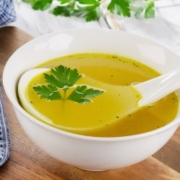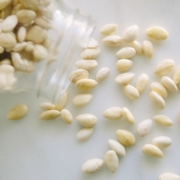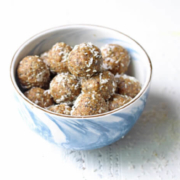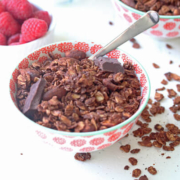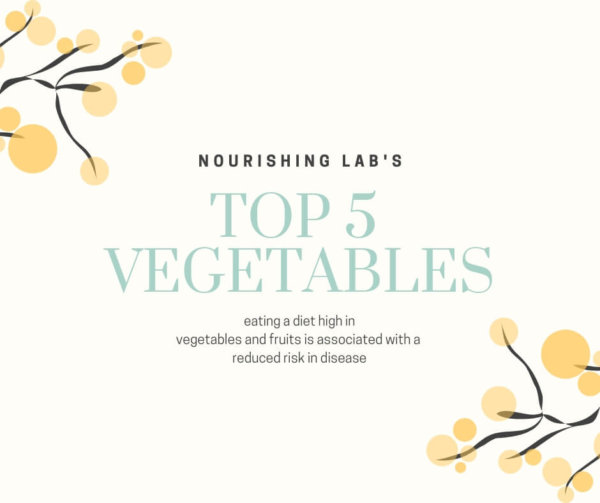
A healthy digestive system is one of the most popular topics among my clients – and
it’s no wonder so many people are concerned with their gut health!
According to the American Journal of Clinical Nutrition, eating a diet high in
vegetables and fruits is associated with a reduced risk in disease (1) – and plenty of
these reduced risks are because of the benefits to your gut health.
Unfortunately, the diets most of us have are doing more than good, where the foods
we eat are actively damaging our digestive system instead of helping it.
Whether it’s gas, bloating, constipation, etc., at some point, we all have digestive
issues from time to time. Incorporating whole foods, especially vegetables and fruits
that are high in fiber, is key for helping your system run properly – and for feeling
like a Golden Goddess !
Everyone has a different system, and that affects how we tolerate differing foods.
Much of this depends on you gut microbiota and your tolerance for fiber. Sometimes
eating too much fiber can leave you full and constipated, while other times it can
cause diarrhea.
The key is to take it slowly and know your fiber!
There are two types of fiber. Both types come from plants and are forms of
carbohydrates. Unlike carbs, however, fiber cannot be broken down and absorbed
by the digestive system. Instead, it moves through your body to slow down digestion
and make your stool softer.
Eating a diet high in vegetables and fruits is associated with a reduced risk in disease.
The two types are:
Soluble Fiber – This is found in nuts, seeds, beans, lentils, veggies, and fruit. It tends
to attract water and turns to a gel during digestion. This fiber protects your heart by
attaching to cholesterol particles and ridding the body of them. It is also helpful in
weight loss because you feel full longer.
Insoluble Fiber – This is found in nuts and seeds, as well as the skin of fruit and
veggies. It does not absorb water and passes through the digestive system in its
original form. It is important for digestive health, especially if you tend to
experience constipation.
The sources of fiber are varied, but to help you make GutLoving choices, I’ve put
together a list of some of my favorites.
My Top 5 Vegetables for Healthy Digestion:
1. Celery – You can eat this whole, or juice it to drink on its own – or in
combination with other juiced fruits and veggies. Celery is a powerful anti-
inflammatory, and contains a multitude of mineral salts that can starve
pathogens, balance your body’s pH, and help with any autoimmune
condition.
1 cup of celery has about 2 grams of fiber.
2. Asparagus – This is a fantastic, healing vegetable that is high in selenium,
zinc, manganese, B-complex – including folate, vitamins A, C, and K – and of
course, fiber!
It contains anti-inflammatory properties and is high in antioxidants.
Asparagus also serves as a diuretic, ridding the body of excess salt and fluids,
which is very helpful for people with high blood pressure or heart related
diseases.
It also nourishes the digestive tract: the fiber passes undigested to our large
intestine and acts as food for our good bacteria. This fiber also slows down
digestion, which helps regulate blood sugar levels and makes you feel full
longer.
1 cup of asparagus has 2.9 grams of fiber.
3. Jerusalem Artichoke – This veggie nourishes the liver and digestive tract,
and reduces systemic inflammation. It is also a high source of prebiotics, the
food that feeds the bacteria in our gut.
The Jerusalem artichoke detoxes the liver and digestive system. They boost
the production of bile through a substance called cynarin, which is important
for the digestion of fats and fat soluble vitamins.
By improving the gut flora as a prebiotic, Jerusalem artichokes boost the
immune system (since the immune system is actually held within the gut).
You can add these to salads, stir-fry, soup, or eat alone.
The high fiber content can help with weight loss too! The soluble fiber is a
great way to keep off the dangerous visceral fat that accumulates around
your waistband.
1 medium artichoke has about 10 grams of fiber.
4. Greens – These are always on my Golden Goddess Plate! They provide
vitamins, minerals, antioxidants that prevent aging, phytonutrients, and
fiber.
Greens produce antioxidants that repair cell damage from the environment,
and they act as detoxifiers because of their high fiber content. They also
Provide resistant starch that feeds the good bacteria in our gut.
The wonderful greens also strengthen our immune system so we can resist
disease and illnesses. It’s better to be proactive!
Try greens in your smoothie, stir-fry, stew, soup, or take some collard greens and
use it as a wrap for a “sandwich.”
1 cup of kale has 2.6 grams of fiber.
2 cups of spinach has 1.4 grams of fiber.
1 cup collard greens has 7 grams of fiber.
5. Zucchini – You can buy yellow, light green, and green varieties. Surprisingly,
it can aid in weight loss because of the fiber content!
Zucchini protects the cardiovascular system because it’s high in vitamin C and
manganese. It’s also high in magnesium, which can help reduce the risk of heart
attack and strokes, as well as potassium, which helps reduce high blood pressure.
1 medium zucchini has about 2 grams of fiber.
With all this in mind, why eat processed foods filled with hidden sugars and
unknown ingredients when you can eat these heart healthy, gut healing veggies?
So much of our overall health – both physically and mentally – begins with the food
we eat, and how that food affects the digestive system. To truly harness the Golden
Goddess you have within you, pay close attention to what you’re consuming. Focus
on fruits and veggies (especially the 5 I’ve listed here), and get to know how your
body deals with fiber.
Adjust to find what works right for your unique digestive system, develop a
GutLoving diet, and set your Golden Goddess free!
Sending love and light,
Melissa

